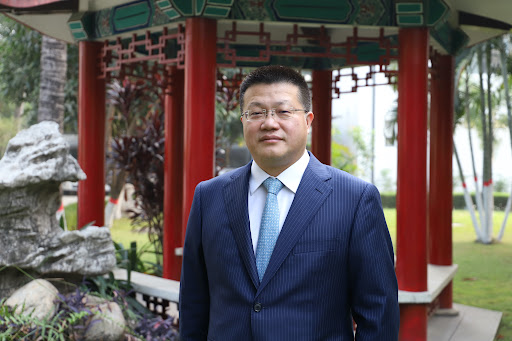News Flash
News Flash

DHAKA, Mar 11, 2025 (BSS) - China is set to ramp up investments in Bangladesh’s key sectors, including textiles, clean energy, electric vehicles, and digital technology, said Chinese Ambassador to Bangladesh Yao Wen.
Speaking at a seminar in Dhaka today, he reaffirmed Beijing’s commitment to expanding trade cooperation and deepening economic ties between the two nations.
The envoy highlighted China’s plan to grant Bangladesh zero-tariff treatment on all taxable items before its transition from the least developed country (LDC) status.
“We are ready to encourage more Chinese companies to invest in Bangladesh and further strengthen economic collaboration,” he said.
Since the formation of Bangladesh’s interim government, 14 Chinese firms have already invested a total of USD 230 million in the country, he noted.
The seminar, organized by the Centre for Alternatives, featured discussions on bilateral trade dynamics, with experts emphasizing the need for a balanced economic relationship.
The event was attended by international relations experts professor Dr Imtiaz Ahmed, former Rector of Bangladesh Foreign Service Academy Mashfee Binte Shams, Dhaka University Professors Dr. Rashed Al Mahmud Titumir, North South University Professor Dr. Amena Mohsin and independent researcher Syed Shahnawaz Mohsin.
Ambassador Yao urged both the nations to work together to highlight the evolving China-Bangladesh partnership.
“Let’s tell a vibrant and passionate story of China-Bangladesh friendship and ensure our strategic partnership yields more tangible outcomes,” he said.
The ambassador noted that China’s relationship with Bangladesh remains people-centric, with a strong focus on healthcare and education.
Marking 50 years of diplomatic relations, he highlighted fresh initiatives, including sending the first group of Bangladeshi patients and doctors to China for medical services.
“Bangladeshi people are showing a growing interest in visiting, studying, and doing business in China,” Yao said.
The envoy said that 58 direct flights per week have been operating between the two countries and while China introduced streamlined visa procedures to facilitate travel of Bangladeshi nationals.
With increasing enthusiasm from Bangladeshis for deeper engagement with China, Yao stressed the need for strengthening people-to-people exchanges. “We must continue to nurture our ties by fostering academic research, cultural understanding, and business collaborations,” he added.
Speakers at the seminar underscored China’s expanding footprint in Bangladesh’s industrial and technology sectors and the importance of fostering public-private partnerships for sustainable infrastructure development.
Discussions also touched on China’s role in regional diplomacy, particularly its involvement in the Rohingya crisis, with calls for a more proactive approach.
At the seminar, the Centre for Alternatives unveiled its survey report on the “National Image of China in Bangladesh” for three consecutive years.
The survey result showed that 99 percent of the people interviewed approve of and support the friendly relationship between China and Bangladesh, showcasing the broadness of the consensus.
Around 60.1 percent of Bangladeshi people thought positively of China in 2022, which rose to 66.7 percent in 2024.
About 50 percent of Bangladeshi people recognised the development of China's economy, science and technology in 2022, and the figure surged to 85 percent in 2024.